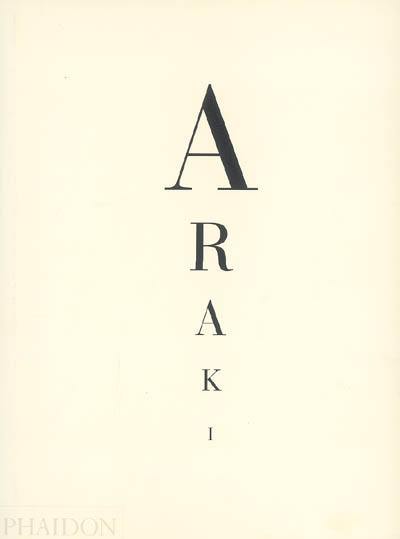
Fiche technique
Format : Cartonné
Nb de pages : 719 pages
Poids : 3130 g
Dimensions : 23cm X 30cm
EAN : 9780714845555
Quatrième de couverture
Nobuyoshi Araki is one of Japan's greatest living photographers, and certainly its most controversial. Over the last forty years he has published more than 250 books, which bear testimony to his inexhaustible creative energy, while his work, which often challenges social taboos surrounding sex and death, has drawn critical attention both at home and abroad.
In 1971 Araki privately published Sentimental Journey, an intimate account of his honeymoon with his wife Yoko. In the Preface to this book Araki declared that his `point of departure as a photographer was love ... and the idea of an "I-novel"'; a form of Japanese fiction written autobiographically and in the first person. With this, Araki established a new genre, `I-photography', in which his own life and feelings became the central subject of his work. This idea was to have a great impact on a new generation of Japanese photographers, especially in the 1990s.
Through his immense body of work Araki has created his own universe, where the themes of sex, life and death are closely intertwined. Tokyo, Araki's home city, often plays a leitmotif in his work, while his rich visual vocabulary is drawn from the erotic ukiyo-e prints of the Edo period (1600-1868) as well as the glossy imagery of the new commercial culture. Through his innovative approach to photography - sometimes combining painting, drawing and film - Araki has become an important and influential figure in the contemporary art world.
This major publication provides the most comprehensive overview yet of Araki's highly prolific forty-year career. Araki's key series of works are included alongside many new and previously unpublished photographs. Featuring an interview and essays by writers from Japan and Europe, this book examines Araki from a broad range of perspectives and gives a cultural context to his work. Also included is a wide selection of Araki's writings, translated into English for the first time, as well as an illustrated and annotated bibliography of his own books. Reflecting Araki's photographie principle, `I-photography', the book is divided into three sections that follow the main recurring themes in his work: Self, Life and Death.






